A Texan’s Guide to Overlanding
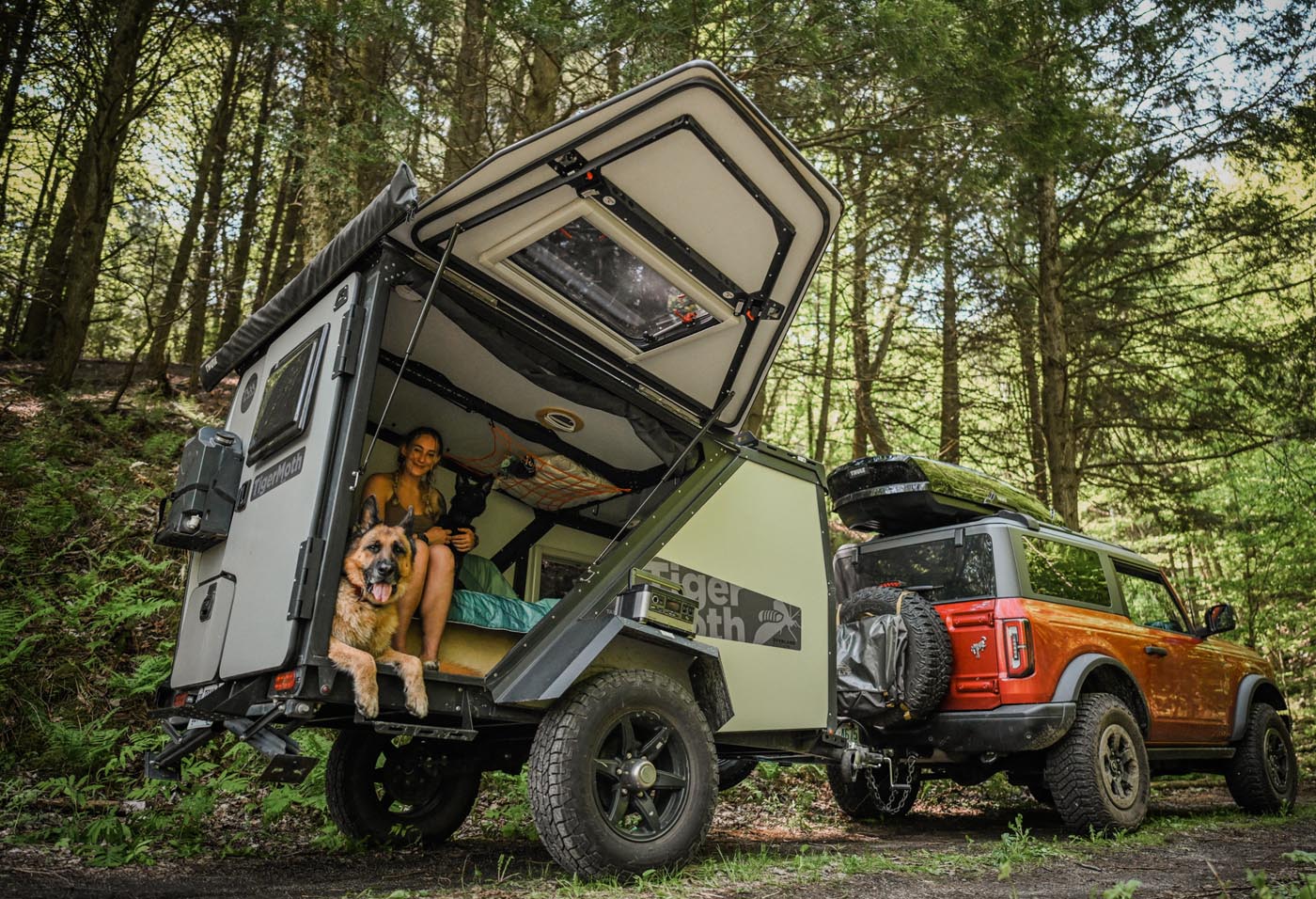
If pushing the limits of outdoor adventure and connecting with a wilderness greater than yourself is what you crave from your trips into the natural world, overlanding is for you. This type of self-sufficient travel puts you in charge as you explore the untouched corners of the natural world. That’s why I created the first habitats for TAXA Outdoors, to help people go further into to nature and connect with the outdoors.
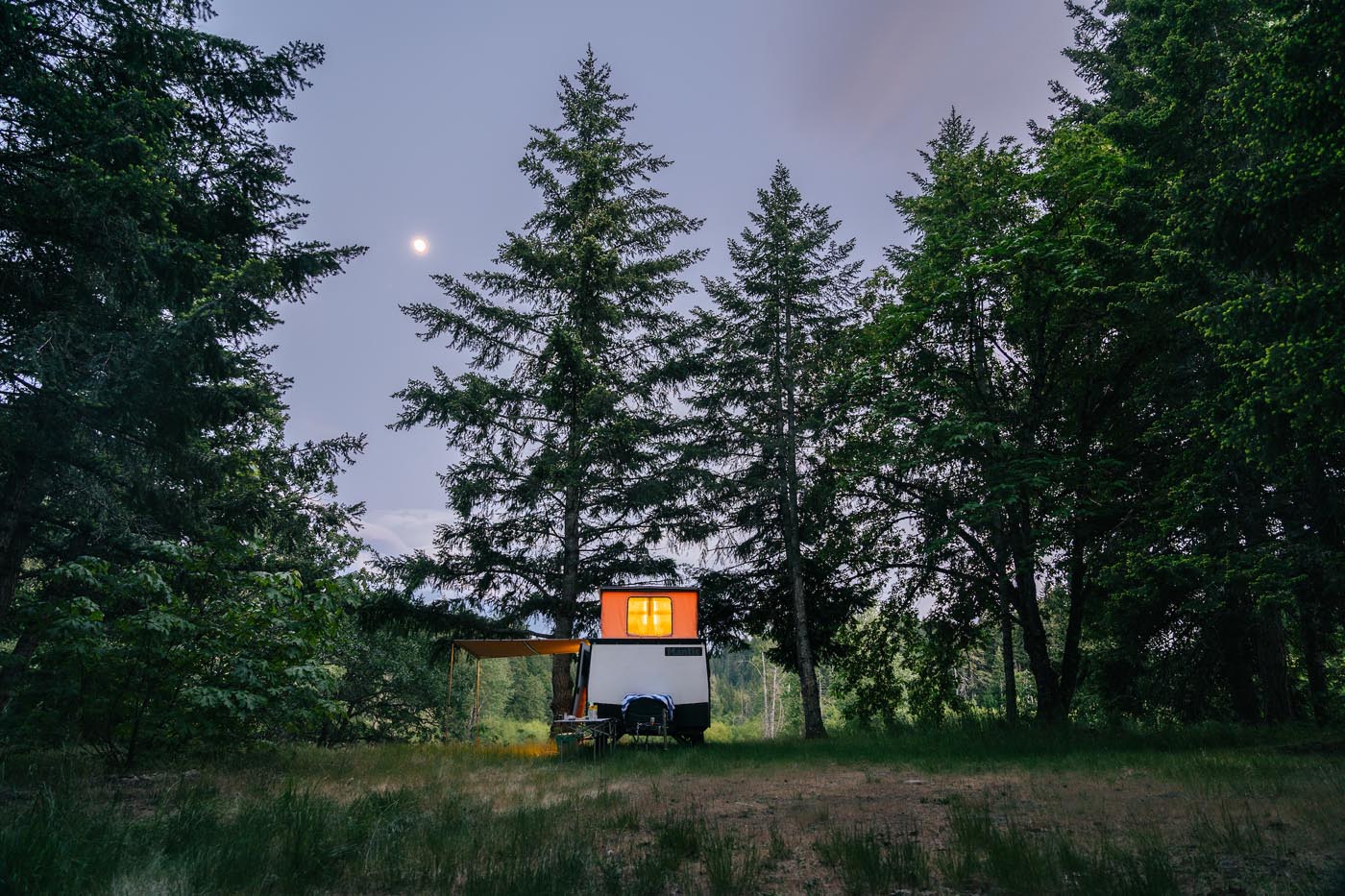
Photo Courtesy of Mary Hannah Hardcastle
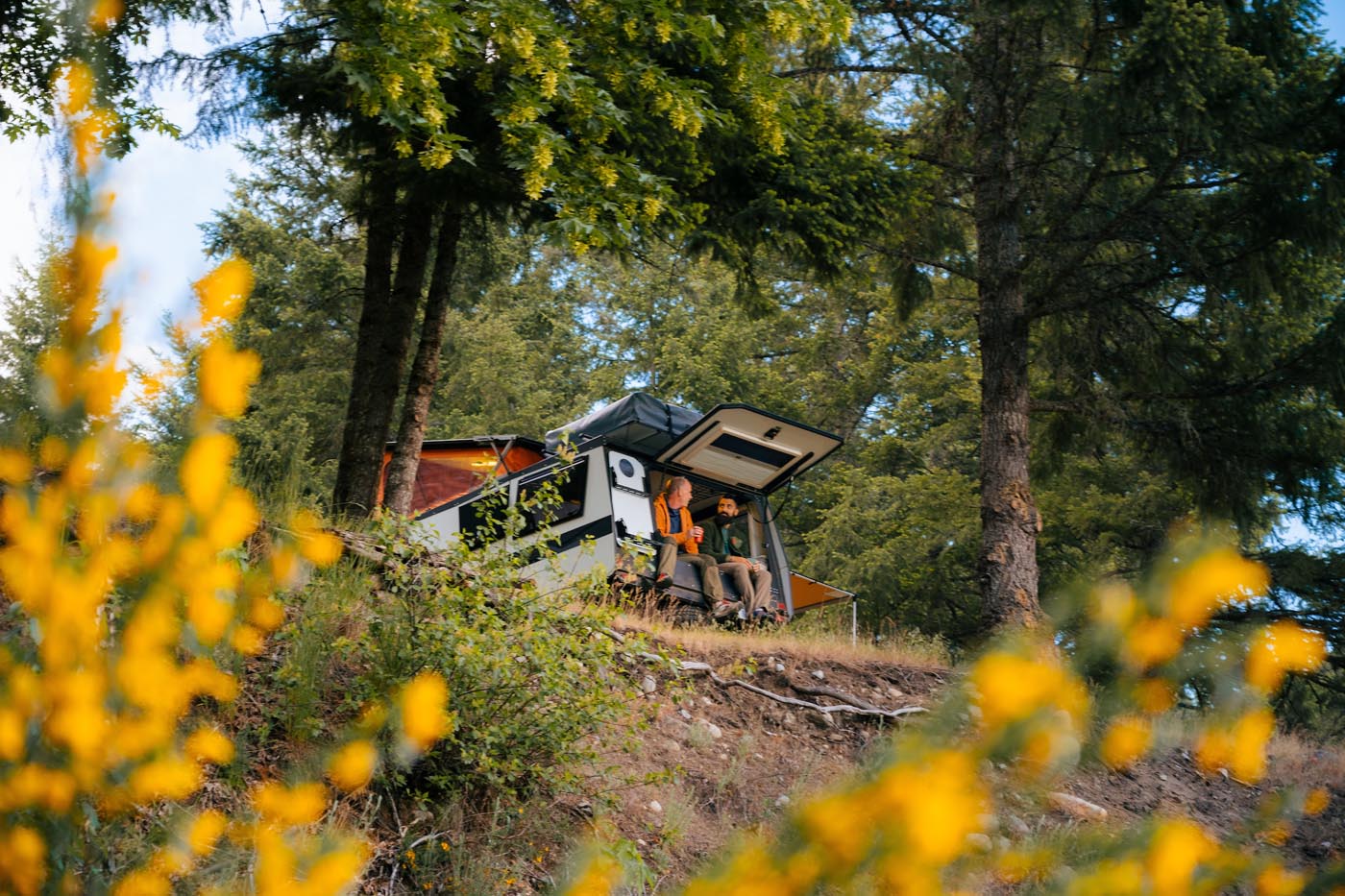
Photo Courtesy of Mary Hannah Hardcastle
To become an overlanding explorer all you need is an off-road vehicle, your essential gear, and a pioneering spirit. A typical overlander is someone who possesses a deep sense of adventure, a love for the outdoors, and a desire to explore the world beyond well-trodden paths. They are self-reliant, curious, and relish in the journey rather than the destination. It means driving from here to Alaska or Chile (or both), and it means driving just slightly further down a road than most of your fellow travelers.
Before you take to the open road, you need to map out your trip, budget, and safety plan first. The following list of considerations are tailored to overlanding in the vast and diverse terrain of Texas, but you can translate these planning steps to anywhere in the world you’d like to explore. Here’s what you need for a successful overlanding adventure:
- Trip planning: The first step to your thrilling adventure should include planning, researching, and mapping out your route. As part of your research, check and see if the area you’re visiting requires any special permits or restricted areas you can’t enter, as some places have seasonal closures or limit access to protect the environment. While you will most likely be safe and sound on your journey, create an emergency plan that includes an itinerary with estimated travel times and share it with a trusted family member or friend. Be aware of nearby medical facilities or emergency services.
- Budgeting: The whole point of overlanding is to go off the grid, so you’ll need supplies to make that easy, and those supplies cost money. Allocate a budget for vehicle maintenance before you depart so your vehicle is in excellent condition for adventuring. You’ll also need to factor food, water, and gas into your budget, as you may not always have easy access to grocery stores or gas stations in remote areas. Finally, save some additional funds for any potential campsite fees and other unforeseen expenses, just in case.
- Safety precautions: Before you leave, make sure your vehicle’s brakes, tires, and engine fluids are all ready to go. Pack a tool kit, spare tire, and vehicle recovery kit for any repairs you may have to do on the road. When planning where you’ll park for the night, make sure you heed any flash flood or wildfire warnings, and if something feels off with your campsite, trust your gut and find a new one. I also recommend investing in a satellite phone in case you need to contact someone or update need-to-know contacts on your travel progress. You can also get a personal locator or GPS vehicle tracker.
There are also a variety of vehicles and trailers that are specifically designed to accommodate your needs on an overlanding journey. If you’re brand new to this adventurous style of travel, you’ll want to get some experience with off-road driving. Try finding local overlanders in your area who can show you the ropes or take the vehicle you plan to use on your journey to an off-road driving class.
While you might picture overlanding only happening in tricked-out offroading vehicles, you can go overlanding in just about anything as long as you balance your vehicle’s fuel efficiency with your gas budget, consider its reliability, and make sure it’s been fully inspected by an experienced mechanic. If you plan to tow a trailer, prioritize towing capacity to ensure the safety and efficiency of your ride.
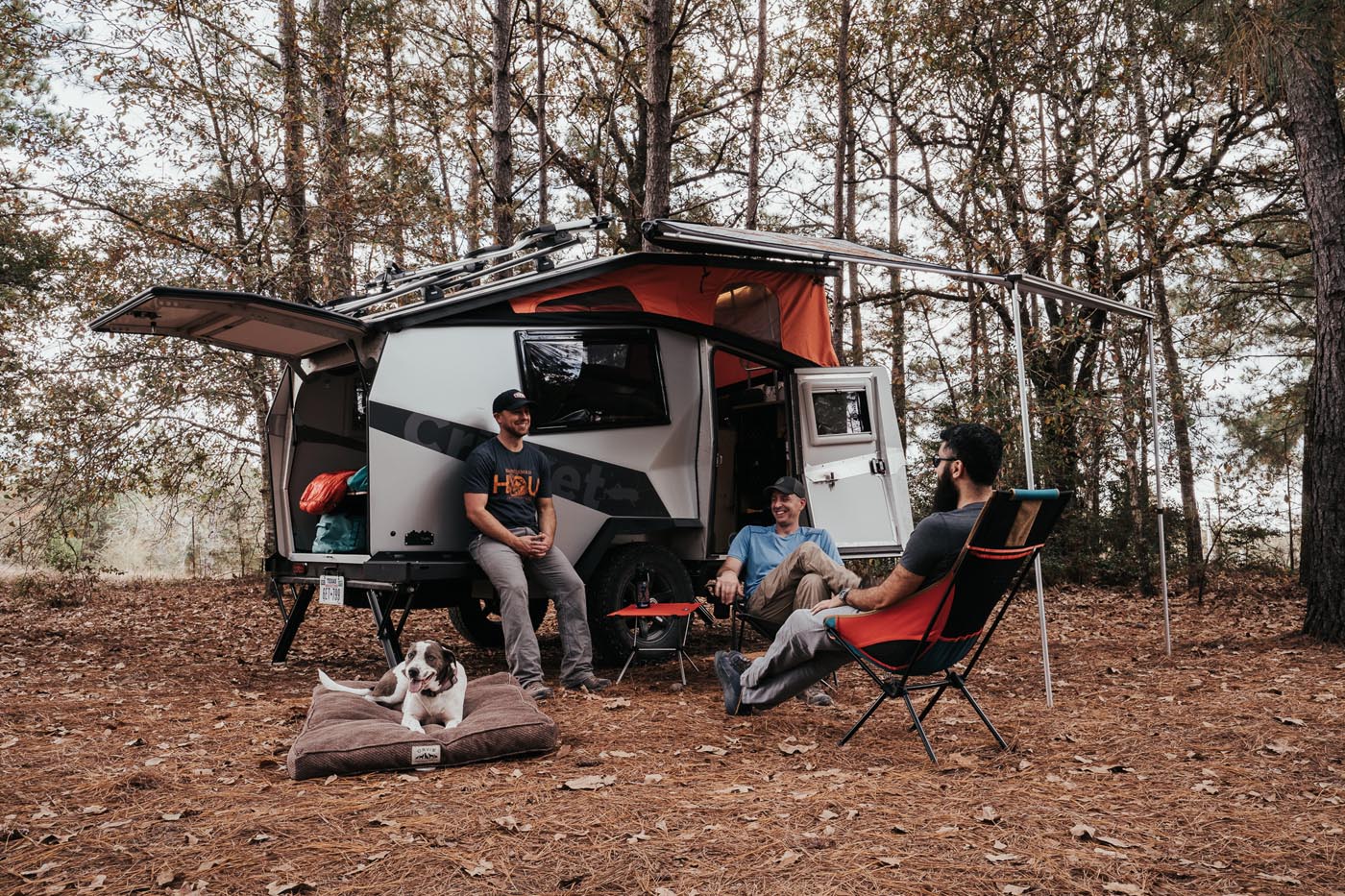
Photo Courtesy of Ally Hardgrave
Now, let’s talk about packing for your trip. Overlanders embrace the journey, so you’ll need to have the right supplies to keep you ready for anything—whether your car breaks down or someone in your group gets injured. Your packing list should include navigation and communication necessities like walkie-talkies and GPS devices, as well as emergency, safety, and personal care products. There are many extensive overland packing lists online that cover everything you’ll need for your trip, including clothes for hot and cold weather—as Texas nights can get chilly depending on the season.
Speaking of the weather, you’ll need to take into account the unique set of challenges and advantages that come with overlanding in Texas. With 268,596 square miles of Lone Star State to explore, the geography and climate vary widely—from mountains to coastal towns to deserts, so always be sure to research the area you plan to visit extensively.
That being said, fall is considered the best time to go overlanding in Texas because the weather is milder, making it pleasant for camping and outdoor activities. Winter can also be a good time to overland in the southern part of the state, where the weather remains mild through December to February, but be prepared for potential temperature variations. Spring can be a great time to overland through Texas, with moderate temperatures and blooming wildflowers that create stunning views. Unless you’re planning to overland through the northern regions of the state, you’ll want to hang up your gear and park your trailer in the garage for the summer months, as Texas summers regularly exceed 100°F, making overlanding both uncomfortable and potentially dangerous.
My favorite place to adventure deep into the Texas wilderness is Big Bend Ranch State Park — the only park I have been to that strongly recommends that you bring two spare tires! The park is big and wild, and the most sunscorched and Milky Way-drenched place that I have ever been. It is desolate and exposed in the best, high-desert kind of way. The sky is big, the cacti are sharp, and you can choose how wild you want to be. Especially because the park is so big, it takes park rangers two days to cover its entirety, so make sure you always have two days’ worth of food and water when you visit.

Photo Courtesy of Ally Hardgrave
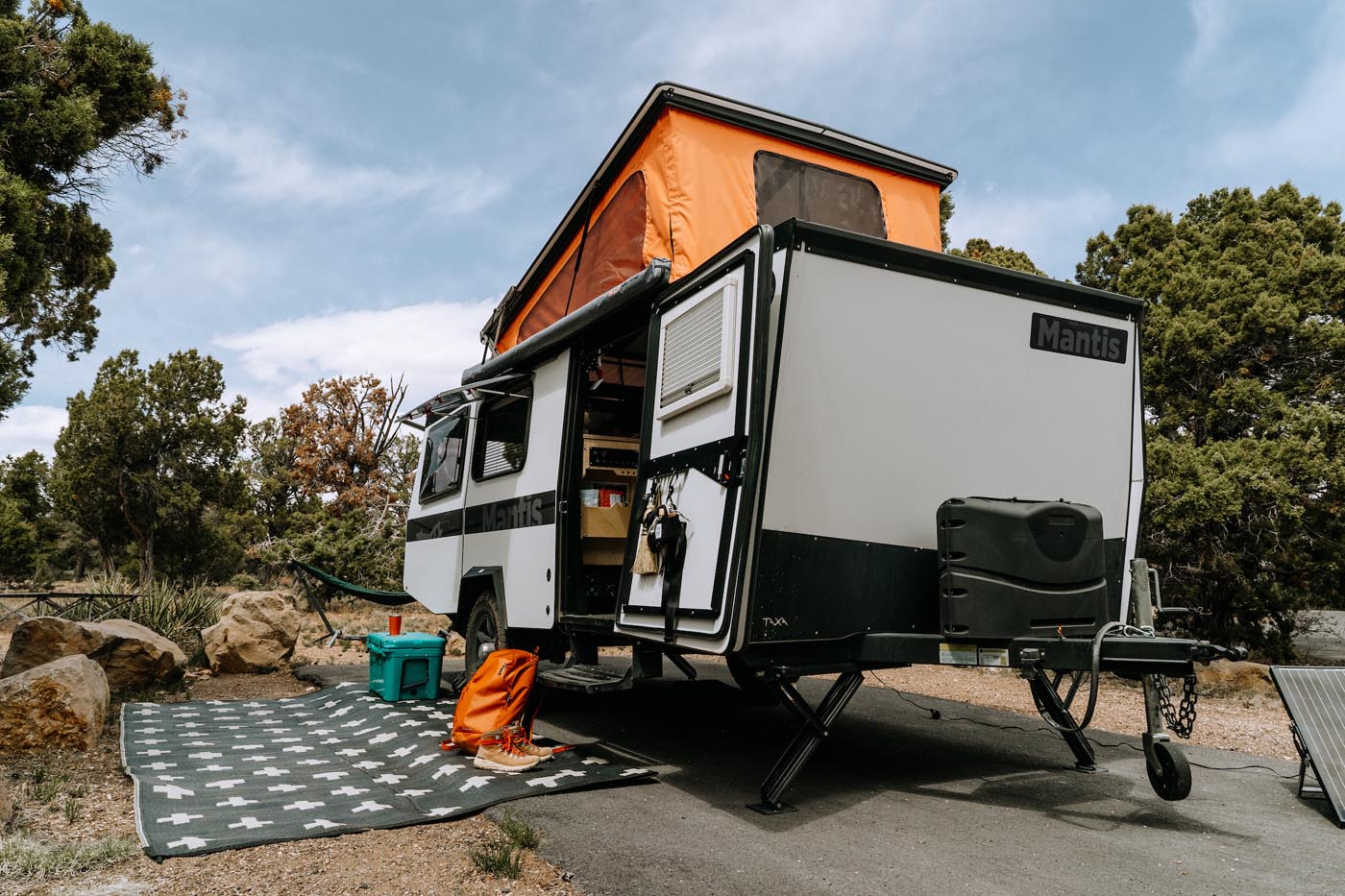
Photo Courtesy of Mary Hannah Hardcastle
You should also check out the Cheeseburger Loop in Central Texas. It’s 170 miles of dirt, paved, and gravel roads that take about two to three days to complete. The trail takes you through pasture land and the Sam Houston National Forest, offering a variety of places to camp for the night. For a moderately challenging trail, try the Barnwell Mountain Recreation Area Loop near Gilmer, Texas. This 10-mile trail is for off-road vehicles only, and it’s unlikely you’ll encounter other people on the trail. You can also reserve one of the few primitive campsites that are available.
I hope this introduction to overlanding inspires you to dust off your maps, pack your camping gear, and rev up your wanderlust-fueled heart, for Texas offers an expansive outdoor playground like no other. Overlanding offers the opportunity to unleash your inner explorer, bask in the freedom of the great outdoors, and discover hidden gems that lie beyond the horizon. Now is the time time to step out of your comfort zone, immerse yourself in nature’s embrace, and let overlanding be the catalyst for a transformative adventure that fuels your soul.
About the Author
Garrett Finney, the founder and chief designer of TAXA Outdoors, brings a unique perspective to the world of camping trailers. Prior to creating TAXA, he honed his skills as the leader of NASA’s Habitability Design Center, where he focused on crafting living spaces optimized for human interaction in constrained environments. His expertise in small space design and understanding of human needs paved the way for the creation of his brainchild, Cricket—a camping trailer that perfectly suited his outdoor lifestyle, balancing functionality with a sense of adventure. In 2014, fueled by his passion for innovative design and outdoor exploration, he established TAXA Outdoors, revolutionizing the camping experience for adventurers worldwide.






